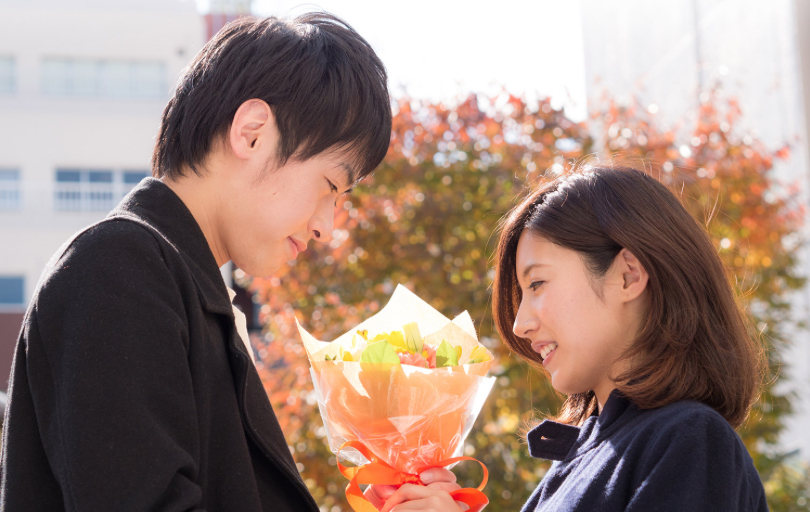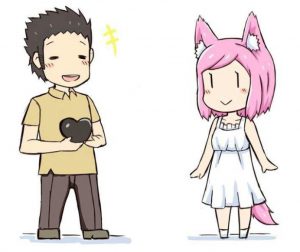
Japan is a gift-giving culture. There are hardly any occasions for which it is not customary or at least acceptable to proffer a gift. A visit, a lunch at someone’s house, health issues, news of even the lightest import — new pet, new home, new car, new set of dentures, — knitting socks, harvesting soybeans, a near traffic accident. Yes, I had a lady almost hit me on my bicycle with her car — she slammed on her brakes and literally stopped with her bumper against my pant leg — track me down (not very hard since I’m the only elderly Westerner in the area with Rod Stewart hair), and leave a bag of eggplants on my porch. Add this abundance of uniquely Japanese magnanimity to the conventional observances which most modern developed economies share and have duly exploited to nauseating levels of melodrama and sentimentality —  weddings, funerals, graduations, anniversaries, birthdays, Christmas, Mother’s Day, Father’s Day — means hefty dividends for anyone heavily invested in industries making gift-wrapping, ribbons and bows.
weddings, funerals, graduations, anniversaries, birthdays, Christmas, Mother’s Day, Father’s Day — means hefty dividends for anyone heavily invested in industries making gift-wrapping, ribbons and bows.
Amplifying the initial impetus for graciousness and generosity driving the whole gifting frenzy — evidently hard-wired into Japanese people — the act of giving a gift triggers a immediate, requisite response, a reciprocation in kind, the product of heart-felt appreciation for the original gesture: The ‘thank-you-for-the gift’ gift.
“どうもありがとうございました!” (Thank you so very much!)
“どういたしまして!” (You are indeed very welcome!)
 It is beyond any dispute: If gift-giving were for some mysterious reason to suddenly come to a halt here, the entire Japanese economy would collapse within hours.
It is beyond any dispute: If gift-giving were for some mysterious reason to suddenly come to a halt here, the entire Japanese economy would collapse within hours.
One month after Valentines Day in Japan — meaning March 14th — we have White Day.
White Day is the occasion for the guys to give to the girls sweet treats and other simple gifts, payback for bestowing on them piles of chocolate and other heart-shaped confections on February 14th.
Is it tit-for-tat? Do guys at least for this simple, rather innocent holiday put their chauvinism on hold, do the expected thing by giving a thank-you-for-the gift’ gift?
Some do. Others ignore most of the girls who’ve been generous with them and just give a White Day treat to the one(s) they’re interested in, as in viewing with something remotely resembling romantic interest.
Whatever the case, while diabetes is on the increase here in Japan, afflicting around 6% of the population, it still is ranks far behind the three leaders: India, China, and the U.S.
 Not that many people worry about the insulinary efficiency of their pancreas on either Valentines or White Day. That would probably be true just about anywhere in the world.
Not that many people worry about the insulinary efficiency of their pancreas on either Valentines or White Day. That would probably be true just about anywhere in the world.
Time for a Snickers bar, anyone?




Life In Japan: White Day
Japan is a gift-giving culture. There are hardly any occasions for which it is not customary or at least acceptable to proffer a gift. A visit, a lunch at someone’s house, health issues, news of even the lightest import — new pet, new home, new car, new set of dentures, — knitting socks, harvesting soybeans, a near traffic accident. Yes, I had a lady almost hit me on my bicycle with her car — she slammed on her brakes and literally stopped with her bumper against my pant leg — track me down (not very hard since I’m the only elderly Westerner in the area with Rod Stewart hair), and leave a bag of eggplants on my porch. Add this abundance of uniquely Japanese magnanimity to the conventional observances which most modern developed economies share and have duly exploited to nauseating levels of melodrama and sentimentality — weddings, funerals, graduations, anniversaries, birthdays, Christmas, Mother’s Day, Father’s Day — means hefty dividends for anyone heavily invested in industries making gift-wrapping, ribbons and bows.
weddings, funerals, graduations, anniversaries, birthdays, Christmas, Mother’s Day, Father’s Day — means hefty dividends for anyone heavily invested in industries making gift-wrapping, ribbons and bows.
Amplifying the initial impetus for graciousness and generosity driving the whole gifting frenzy — evidently hard-wired into Japanese people — the act of giving a gift triggers a immediate, requisite response, a reciprocation in kind, the product of heart-felt appreciation for the original gesture: The ‘thank-you-for-the gift’ gift.
“どうもありがとうございました!” (Thank you so very much!)
“どういたしまして!” (You are indeed very welcome!)
One month after Valentines Day in Japan — meaning March 14th — we have White Day.
White Day is the occasion for the guys to give to the girls sweet treats and other simple gifts, payback for bestowing on them piles of chocolate and other heart-shaped confections on February 14th.
Is it tit-for-tat? Do guys at least for this simple, rather innocent holiday put their chauvinism on hold, do the expected thing by giving a thank-you-for-the gift’ gift?
Some do. Others ignore most of the girls who’ve been generous with them and just give a White Day treat to the one(s) they’re interested in, as in viewing with something remotely resembling romantic interest.
Whatever the case, while diabetes is on the increase here in Japan, afflicting around 6% of the population, it still is ranks far behind the three leaders: India, China, and the U.S.
Time for a Snickers bar, anyone?